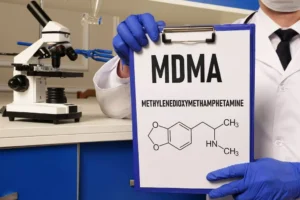
For guests who are entering our outpatient program after treatment at another facility, or first-time guests, we can also help you obtain employment and will work with you to get you set up in life. Our primary goal in providing a sober living environment is to prepare guests for complete independence. To do this, our sober living housing gives guests time to learn life skills, be part of a community, balance work and recovery, have others to socialize and interact with, and have the added support from clinicians and staff during this phase of early recovery. For people seeking recovery, housing solutions that provide time and support for sustainable, long-term recovery are essential. In fact, SAMHSA has identified safe and stable housing as one of the four main dimensions to recovery. Recovery Residences are a viable and cost-effective alternative to established recovery-oriented systems of care.
About Residential Care [Inpatient Care]
We understand the importance of stability and accountability in early recovery from substance use disorder, which is why we took care in the design and execution of our treatment programs. It’s critical for people in early recovery to begin re-building life skills and independence, but it is just as important that they know that support is available if needed. MCR Recovery what is a recovery residence stands as a beacon of hope for those battling addiction, offering more than just recovery housing we provide a sanctuary where accountability, healing, and personal growth flourish. Founded on the belief that recovery is a journey best navigated with experienced guides, our team is composed of individuals who have themselves walked the path from addiction to sobriety.
House of Healing
This creates an environment of understanding and camaraderie—everyone striving toward a better future. Our residential mental health program employs a workshop model with a unique group process that has proven successful over five decades. Contrary to common misconceptions about group therapy, this process ensures that individuals work through the program’s curriculum as a group but apply it to their individual situations. The closed admission dates and limited group size create a safe and intimate space for genuine connections, often leading to lifelong friendships and support systems. Our mission is to provide a safe, stable, and structured environment that supports the journey to health of men in recovery from addiction. 423 Hope provides homes where men seeking recovery learn responsibility and accountability within a peer-to-peer support community.
- After your tour and decision to join, you simply need to complete the intake packet to officially start your recovery journey with us.
- We provide transportation to your addiction treatment, recovery groups, and 12-step meetings.
- A series of studies on Oxford Houses suggest they promote a host of positive outcomes at substantially lower costs compared to standard continuing care after residential treatment.
- Sober living homes are populated by a community of individuals actively in recovery and committed to maintaining abstinence from drugs and alcohol.
- Our compassionate and knowledgeable Rehab Advisors will help you find the right treatment program for your needs and budget.
Portland Sober House
They are often required to attend 12- meetings, abide by a curfew, and follow house rules related to the possession of items such as drugs or alcohol. In addition, residents may be expected to participate in random drug testing to ensure compliance with the house’s program. Join us in our mission to elevate the standard of recovery living, making a lasting difference in thousands of lives each year. Emotional responses and behaviors can be positively influenced by identifying and modifying negative thought patterns. Trauma-focused CBT at The Bridge to Recovery empowers individuals to manage distressing emotions, break the cycle of negative thinking, and regain control over their lives. Our Rehab Advisors have answers to your most pressing questions, including topics surrounding levels of care, treatment offerings, therapeutic modalities, rehab activities, and, most importantly, finding the place where your loved one will get the right care.
- Experiential work involves hands-on, immersive activities that help individuals explore and express their emotions.
- Our residential mental health program sets itself apart from similar kinds of care by dedicating itself exclusively to addressing family of origin trauma and codependency as primary issues.
- This creates an environment of understanding and camaraderie—everyone striving toward a better future.
Sober living homes can range from private, single-family homes to larger residential complexes with several units. Depending on the number of residents, houses may have to be shared and rooms assigned accordingly. Usually, there is a communal kitchen, dining area, and common areas like the living room for socializing or recreational activities. If you are a recovery residence operator and are interested in partnering with the NUWAY Recovery Foundation, contact us at RR@nuway.org to learn more. Paul needed a structured and supportive social life, he needed to be with others in recovery. Seeking help for drug or alcohol addiction can be one of the best choices you’ll make for yourself.


It’s okay if you’re unsure or have questions – we’re here to assist you in the process. The testimonials below are from On the Road to Recovery and describe how recovery housing can help in the recovery process. By understanding the path you’ve taken to get to us, we are committed to helping you structure your life by offering the tools and knowledge to build and maintain a solid foundation in your recovery. Recovery homes have proven to have a success rate of 80%—that is a great success rate for recovery from a substance use disorder. The commitment to holistic healing is evident in The Bridge to Recovery’s diverse array of Wellness Therapies. These therapeutic modalities address emotional, psychological, physical, and spiritual dimensions.
Our Unique Approach to
This oversight process ensures that people seeking recovery housing have access to services that meet the state requirements. Regardless of their differences, both sober living homes and halfway houses provide essential transitional housing that helps individuals maintain long-term recovery from substance abuse. They offer a safe, supportive environment with structure and accountability, allowing individuals to rebuild their lives. By providing a supportive community and access to resources, sober living homes and halfway houses can make all the difference in helping individuals achieve long-term sobriety. Sober living homes, also known as transitional living, halfway houses, or recovery residences, serve as a stepping stone following formal addiction treatment programs for individuals in recovery from substance abuse.
The power of experiential therapy lies in its hands-on, immersive, and expressive tools that uncover, discover, and heal underlying issues. The diverse therapeutic modalities include group therapy, wellness & holistic therapies, narrative therapy, cognitive-behavioral therapy (CBT), and more. Recognizing that the healing journey is ongoing, The Bridge to Recovery provides a dedicated aftercare team and alumni program. Clients become part of the Bridge family for a lifetime, receiving ongoing support, referrals, and connections. The aftercare team assists in building an aftercare toolbox, ensuring a successful transition back home.




